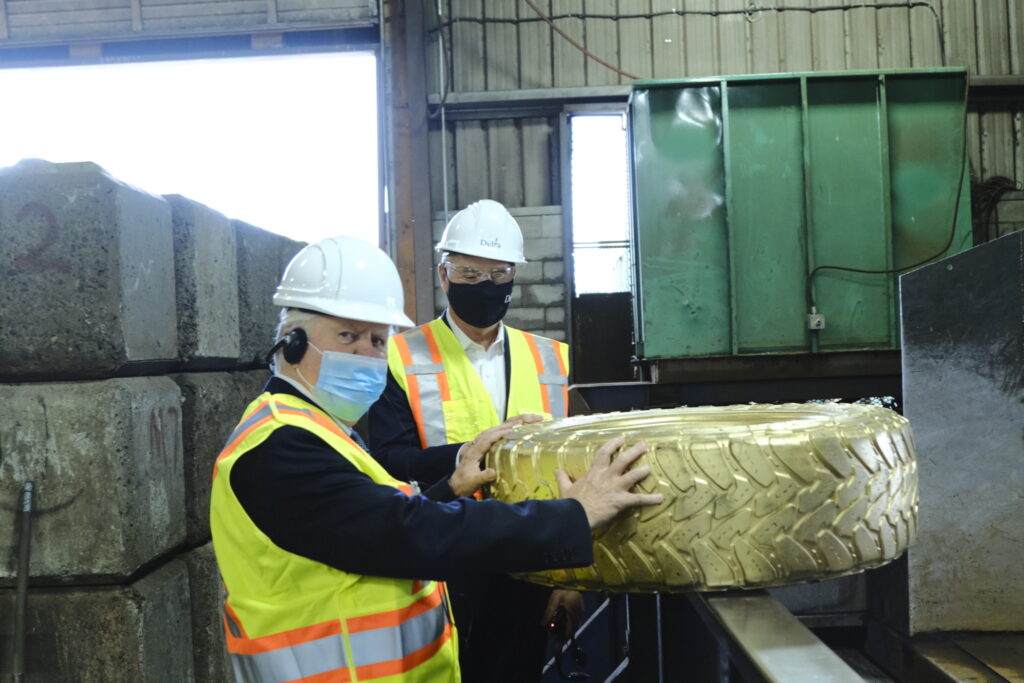Western Rubber Products recycles 100 millionth tire
Western Rubber Products of Delta, B.C. has recycled its 100 millionth tire in the province, just as Canada kicks off the 20th annual Waste Reduction Week.
The business, a division Liberty Tire Recycling, says it’s the largest recycler of scrap tires in B.C., and since 1989 has been the province’s primary collector and recycler of used tires under Tire Stewardship B.C.

Western Rubber Products handles car and truck tires alike.
“Every tire we handle is a tire that is kept out of B.C.’s landfills and our natural environment, with materials repurposed into innovative, new and useful products,” said Neil Bansal, regional vice-president.
“As the province’s primary tire recycler, we’re the only company with the critical mass necessary to handle both the pick-up and the processing of millions of tires every year at the end of their roadworthy life.”
The business recycles more than 5 million scrap tires per year, and employs more than 120 workers at its operations in the Lower Mainland and Vancouver Island.
Recycled products that emerge include decorative mulch, and the crumb rubber used to make rubber mats, athletic surfaces, and landscaping material.
Have your say
This is a moderated forum. Comments will no longer be published unless they are accompanied by a first and last name and a verifiable email address. (Today's Trucking will not publish or share the email address.) Profane language and content deemed to be libelous, racist, or threatening in nature will not be published under any circumstances.